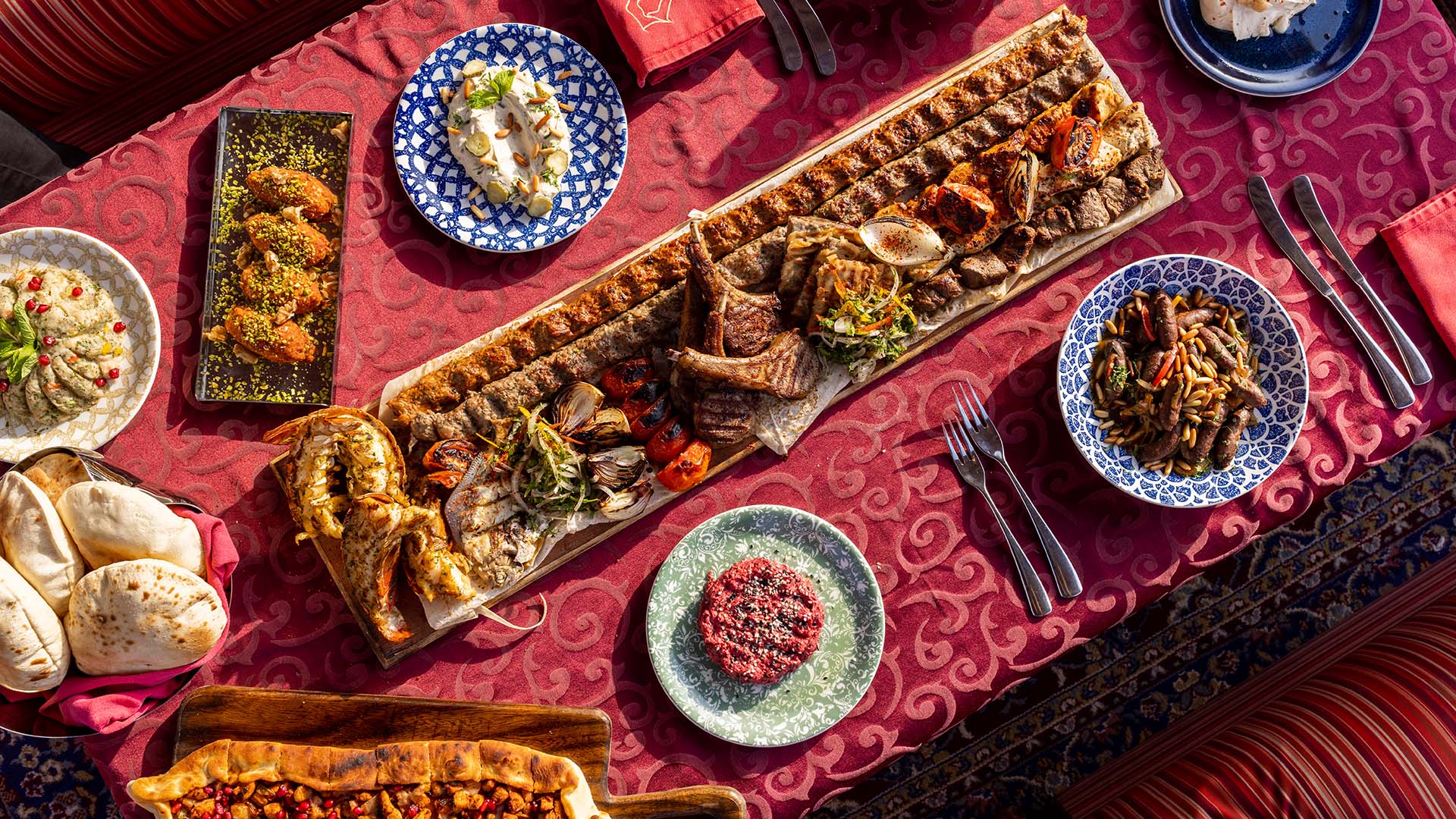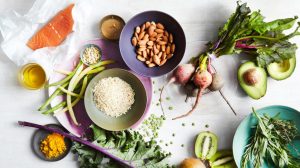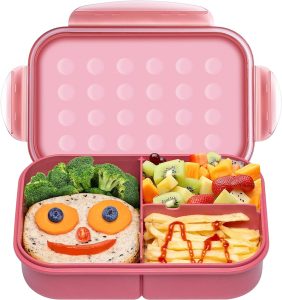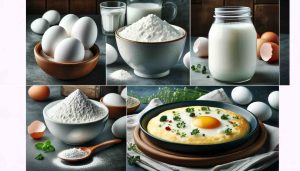During Ramadan, include dates, soups, salads, protein-rich foods, hydrating fruits, and avoid fried or heavy meals. This month-long Islamic fasting period involves abstaining from food and drink from dawn to sunset, followed by a meal before dawn and another after sunset, called Suhoor and Iftar, respectively.
It is essential to consume foods that provide sustained energy, hydration, and essential nutrients to maintain health during this spiritually significant time. Ramadan offers a unique opportunity for spiritual reflection, increased devotion, and communal prayers, along with fasting. The food choices during this period play a crucial role in one’s overall well-being and energy levels throughout the day.
By focusing on nutritious options and mindful eating habits, individuals can optimize their Ramadan experience and stay nourished while honoring their religious practices.

Credit: www.facebook.com
History Of Ramadan
Origins Of Ramadan
Ramadan is the ninth month of the Islamic lunar calendar, when Muslims fast from dawn till dusk.
Significance Of Ramadan In Islam
The month of Ramadan holds immense spiritual significance for Muslims worldwide.

Credit: traveler.marriott.com
Importance Of Iftar
Importance of Iftar:
Spiritual Significance
Iftar holds great spiritual significance. It symbolizes breaking the daily fast, strengthening one’s connection with God.
Social Importance
Iftar promotes social unity by bringing families and communities together in a shared meal.
Traditional Ramadan Foods
During the month of Ramadan, traditional foods play an essential role in the iftar meal. Some common items include dates, lentil soup, samosas, and various types of meat dishes such as kebabs and biryanis. These foods have cultural significance and are enjoyed by Muslims around the world as they break their fast each evening.
Traditional Ramadan Foods are an integral part of the month-long fasting period, representing cultural and religious significance. During Ramadan, the pre-dawn meal, known as suhoor, and the evening meal, iftar, hold paramount importance in Muslim households. These meals often feature a variety of dishes, some of which have become synonymous with the holy month. Let’s take a closer look at some of the traditional Ramadan foods that are commonly enjoyed during this time of spiritual reflection and communal gatherings.Dates And Water
Dates and water hold a special place in the Ramadan tradition. It is customary to break the fast with dates and water, following the example set by the Prophet Muhammad. The natural sugars in dates provide an instant energy boost after a day of fasting, while water helps rehydrate the body. The simplicity of this combination serves as a gentle and nourishing way to end the fast each day.Fruits And Nuts
In addition to dates, a variety of fruits and nuts are also commonly consumed during Ramadan. These include figs, apricots, raisins, and various nuts such as almonds, cashews, and pistachios. These natural sources of energy help replenish vital nutrients and provide a healthy way to break the fast. Including a colorful array of fruits and nuts in the iftar spread adds a refreshing and nutritious touch to the meal.Samosas And Pakoras
Another staple of Ramadan meals are the savory delights of samosas and pakoras. These crispy, deep-fried goodies are enjoyed as appetizers during iftar. Samosas are typically filled with spiced potatoes, meat, or lentils, while pakoras are made from various vegetables coated in a seasoned gram flour batter. The tantalizing aroma and flavorful crunch of these snacks add an extra layer of enjoyment to the communal iftar gatherings. In conclusion, these traditional Ramadan foods not only hold cultural significance but also provide nourishment and delight during the month of fasting. By incorporating these foods into their meals, Muslims honor their heritage while finding sustenance and joy in their shared spiritual journey.
Credit: m.facebook.com
Regional Ramadan Delicacies
Fasting during the holy month of Ramadan is a time of reflection and spiritual growth for Muslims around the world. Apart from abstaining from food and drink from sunrise to sunset, one of the most anticipated aspects of Ramadan is the breaking of the fast. This daily ritual is an opportunity to indulge in a wide range of delectable dishes unique to different regions. Regional Ramadan delicacies offer a delightful fusion of flavors, textures, and aromas that are guaranteed to tantalize your taste buds. Let’s explore some of these mouthwatering traditional dishes from the Middle East, South Asia, and Africa.
Middle Eastern Delights
The Middle East is renowned for its rich culinary heritage, and during Ramadan, the cuisine reaches new heights. Middle Eastern delicacies like shawarma, hummus, and falafel are staples that grace Iftar tables around the world. Succulent lamb dishes such as mandi and mansaf are also prominently featured, showcasing tender meat infused with aromatic spices. The Iftar experience in the Middle East would be incomplete without dates, the traditional way to break the fast.
South Asian Specialties
South Asian cuisine brings a burst of vibrant flavors to Ramadan. From the mouthwatering succulence of biryani to the savory delight of samosas and pakoras, South Asian specialties add a touch of spice to the Iftar spread. Fragrant dishes like chicken korma and haleem provide a comforting experience for those breaking their fast. Sweet dishes like gulab jamun and sheer khurma add a delightful finale to the meal, leaving a lingering sweetness on the palate.
African Ramadan Cuisine
African cuisine encompasses a diverse range of flavors and culinary traditions, and during Ramadan, these traditions shine through in the delicious dishes prepared. From the hearty Harira soup of Morocco to the flavorful beef stew known as bananas in Somalia, African Ramadan cuisine is an amalgamation of fragrant spices and the creative use of local ingredients. Sambusas and mandazi are mouthwatering pastries that are often served during Iftar, providing a delightful combination of flavors and textures.
Healthy Iftar Options
Discover a range of healthy iftar options to indulge in during the month of Ramadan. From nutrient-rich soups to protein-packed salads, these delicious options will keep you satisfied and energized throughout the fasting period. Enjoy a nourishing and fulfilling iftar meal with these diverse food choices.
During the holy month of Ramadan, fasting from sunrise to sunset is a religious practice followed by millions around the world. After a long day of fasting, it’s important to break your fast with nutritious and wholesome foods. This not only replenishes your energy levels but also ensures that you maintain a balanced diet. In this article, we will explore three categories of healthy iftar options that will leave you feeling refreshed and satisfied: Grilled Delights, Fresh Salads, and Hydrating Beverages.Grilled Delights
Grilled foods are a fantastic choice for iftar meals as they are not only delicious but also provide essential nutrients and protein. Grilling helps preserve the natural flavors of the ingredients while keeping the dishes light and healthy. Opt for lean meats like chicken or fish, marinated in flavorful spices, and grilled to perfection. Vegetarians can enjoy grilled vegetables such as bell peppers, zucchini, and eggplant, which are packed with vitamins and fiber. In addition to being a nutritious option, these grilled delights are also a feast for the eyes and taste buds.Fresh Salads
Adding fresh salads to your iftar spread is a wonderful way to incorporate a wide variety of vegetables and fruits into your meal. Salads are not only refreshing but also provide essential nutrients, vitamins, and minerals. Prepare a colorful salad by combining lettuce, tomatoes, cucumbers, onions, and other favorite vegetables. You can also experiment with different types of dressings to enhance the flavors. Including fruits like oranges, strawberries, or pomegranates in your salad adds a burst of sweetness that perfectly complements the greens. The combination of crunchy greens and juicy fruits makes for a delightful and satisfying iftar option.Hydrating Beverages
Staying hydrated during Ramadan is crucial, especially after a long day of fasting. Hydrating beverages not only quench your thirst but also help restore your body’s water balance. Watermelon juice, rich in vitamins and antioxidants, is a perfect choice to stay hydrated. Alternatively, you can enjoy a refreshing glass of mint lemonade, which not only cools you down but also aids digestion. Herbal teas like chamomile or green tea can also be included in your iftar routine to promote overall well-being. Remember to avoid sugary drinks as they can lead to dehydration and energy crashes. In conclusion, opting for healthy iftar options is essential to maintain your energy levels and promote overall well-being during the month of Ramadan. By incorporating grilled delights, fresh salads, and hydrating beverages into your iftar meals, you are ensuring a balanced and nutritious diet. So this Ramadan, make a conscious effort to nourish your body with these wholesome choices and feel the difference in your well-being.Iftar Desserts To Savor
Indulge in delightful Iftar desserts during the month of Ramadan to satisfy your sweet cravings. From tempting sweet treats to decadent dessert delicacies, these desserts are a perfect way to end your fast on a delightful note.
Tempting Sweet Treats
Satisfy your sweet tooth with a variety of tempting sweet treats that are perfect for Iftar. From traditional date pastries to honey-drenched baklava, these desserts add a touch of sweetness to your evening meal. Fresh fruit chaat and creamy fruit custards are also popular choices for those seeking lighter yet equally delightful options. Unwind with these sweet indulgences after a long day of fasting.
Decadent Dessert Delicacies
Indulge in decadent dessert delicacies that elevate your Iftar experience. Rich and creamy rice pudding, known as kheer, is a classic favorite, topped with nuts and a sprinkle of saffron. Delight in the aroma of freshly baked kunafa, a delectable pastry filled with cheese and drenched in sugar syrup. Don’t miss out on the heavenly taste of qatayef, a stuffed pancake-like treat served with a drizzle of syrup. These delightful dessert options are sure to leave a lasting impression.
Sustainable Eating During Ramadan
During Ramadan, it’s crucial to focus on Sustainable Eating practices to ensure a healthy and mindful approach to food consumption.
Mindful Consumption
Practice mindfulness while eating by savoring each bite and appreciating the food’s nourishment.
Avoiding Food Waste
Avoid food waste by planning meals carefully and storing leftovers properly for future consumption.
Cooking Tips And Tricks
When preparing meals for Iftar during Ramadan, efficient cooking tips and creative ideas can make the process smoother and more enjoyable. Here are some helpful suggestions to enhance your culinary experience:
Planning Iftar Menus
- Create a weekly meal plan
- Include a balance of proteins, carbohydrates, and vegetables
- Prep ingredients in advance for quicker cooking
Quick And Easy Recipes
- Opt for simple one-pot dishes
- Try recipes that require minimal cooking time
- Utilize leftovers creatively for new meals
Creative Food Presentation
- Use vibrant colors to make dishes visually appealing
- Experiment with different plating techniques
- Garnish with fresh herbs for added flavor and aesthetics
Frequently Asked Questions For Food List During The Month Of Ramadan
What Are Some Common Foods To Eat During Ramadan?
During Ramadan, it is common to eat foods such as dates, whole grains, fruits, vegetables, lean proteins, and plenty of fluids. These foods provide essential nutrients and help to sustain energy levels throughout the day of fasting.
How Can I Stay Hydrated During Ramadan?
To stay hydrated during Ramadan, it is important to drink plenty of water and other fluids such as coconut water, herbal tea, and fresh juices. Avoid caffeinated beverages as they can cause dehydration. Also, try to consume foods with high water content, like cucumber and watermelon.
Can I Eat Heavy Meals Before Fasting During Ramadan?
It is not recommended to eat heavy meals before fasting during Ramadan. Instead, focus on eating balanced meals that include lean proteins, whole grains, fruits, and vegetables. These foods provide sustained energy and make you feel fuller for longer periods during the fasting hours.
Conclusion
In wrapping up, embracing a balanced and nutritious diet during Ramadan is key. Incorporating foods rich in protein, fiber, and essential nutrients can help maintain energy levels throughout the fasting period. Additionally, staying hydrated and consuming fruits and vegetables can contribute to overall well-being and support a healthy lifestyle during this holy month.






Be First to Comment